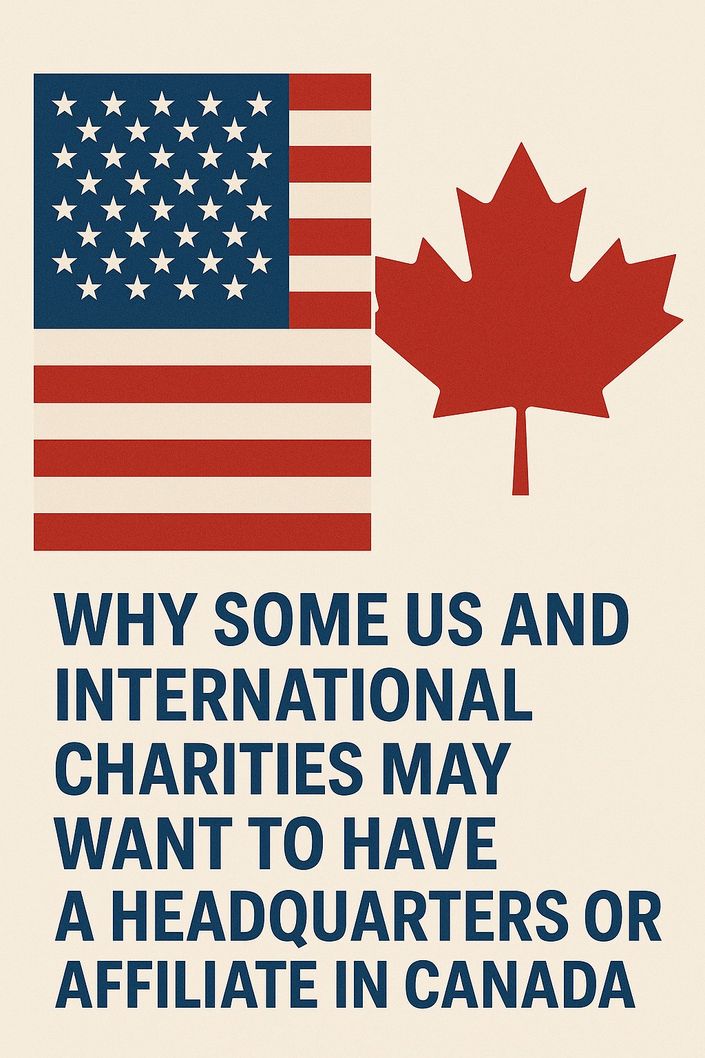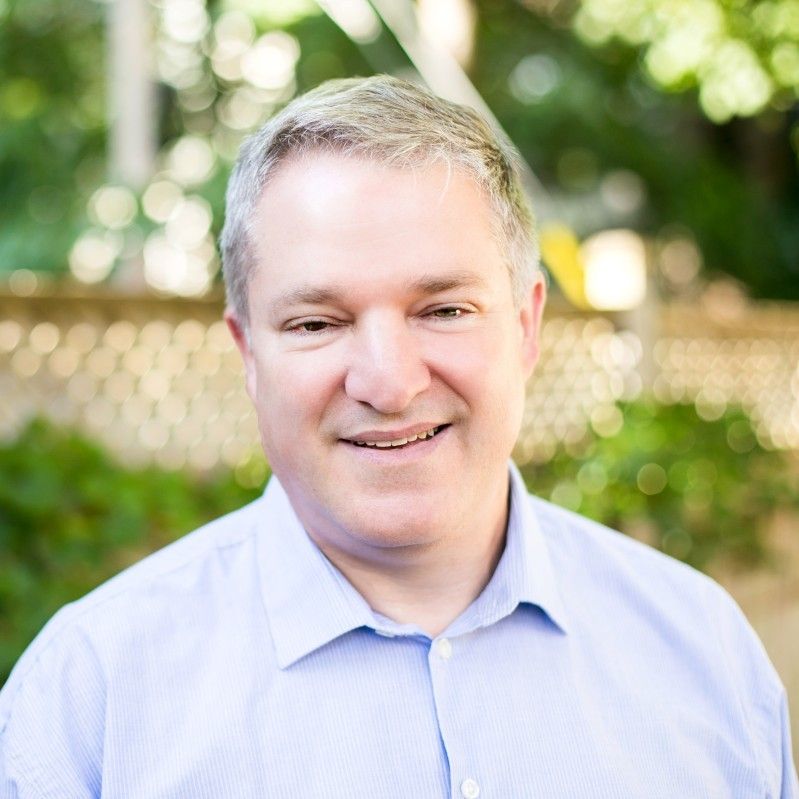
Why some US and international charities may want to have a headquarters or affiliate in Canada
This course will help US and other non-profits that are operating in a precarious environment to understand the advantages of potentially having a Canadian non-profit as an affiliate or, in some cases, as headquarters for the organization.
Enroll in Course
The non-profit world is in a lot of turmoil at the moment. There have been many unfortunate developments, for example, in the United States, that are very ominous, to say the least, for the nonprofit sector and especially for certain nonprofits.
On November 9, 2024, we wrote an article entitled Will the Trump presidency result in more international organizations incorporating or moving to Canada. We thought that the Trump presidency would be very bad for many groups in the US. It appears that it may be far worse than we had thought, and it appears to be getting worse. The above article discusses some of the structuring options.
For many US groups, there is no way and no interest in moving anywhere. If you are an evangelical church in Texas, you are not moving to Canada. If you are a community foundation in Los Angeles, you are not moving to Canada. If you are a social service agency in Buffalo focused on helping homeless people, you are not moving to Canada or establishing a headquarters in Canada.
However, tens of thousands of non-profit organizations in the US are primarily concerned with international work, or the work that they do in the US can be largely or completely done virtually, or they are dealing with sensitive topics like human rights, DEI, LGBTQI+, immigration, reproductive rights, higher education or the environment, etc. Some of them receive funding from US donors, while others receive substantial funding from outside the US. Some have a workforce spread across the world, and it may become increasingly difficult for their foreign employees to even reach the US headquarters. Some US groups have extensive reserves or investments, and they are worried that either the US government or an American bank will freeze those funds or assets or confiscate them. Some are doing projects that, because of their subject matter or the countries they are carried out in, may become impossible if new rules, laws or arbitrary enforcement are carried out.
In some cases, it may make sense for some groups in the US and elsewhere to establish an affiliate in Canada, or it may make sense that the headquarters be based in Canada.
We are not suggesting that US groups leave the US. We suggest that, if the current climate continues, US groups try to carry out their missions as much as they can, and they should have contingency plans carefully prepared that anticipate their organization being shut down, its bank account or investments being frozen, or parts of its activities becoming no longer possible. We are hoping that US groups can continue operating as unimpeded as possible for as long as possible. We are suggesting that some groups in the US should have a contingency plan that may include having an affiliate in Canada to limit the potential devastation that we have seen, and, unfortunately, even more dire circumstances we may be seeing in the near future. Establishing a Canadian affiliate can be done very easily and inexpensively , and can result in very large benefits for some organizations.
The big question is, when does one start to prepare for a potentially dramatically increased hostile environment? Does one wait till funding is cut? Does one wait for when your organization’s bank account is frozen because you have a ‘woke’ agenda? Hopefully, you act before it is too late, and then everything becomes much clearer, and there is finger-pointing around why relatively easy steps were not undertaken by those in control when they could.
Every group will have a different mission and appetite for risk. Every group is going to be affected differently by the uncertain and problematic climate in the US. There is nothing wrong with hoping that the next 4 or 8 years will not be as bad as one thinks they could be. But as they say, hope is not a plan.
This course will cover:
- the Canadian regulatory environment for non-profit organizations and how it is different from the US;
- the advantages and disadvantages of a US non-profit organization establishing a presence in Canada, whether it is just an affiliate or an international headquarters;
- different entities in Canada that would be more appropriate for an international non-profit;
- the differences between non-profits and registered charities in Canada;
- the process for establishing Canadian non-profits and the process for obtaining registered charity status;
- cross-border issues and transfers of funds;
- how an independent affiliate outside of the US could hold some funds or reserves, receive foreign funds, carry out activities outside the US that US groups may be precluded from, and support staff and beneficiaries in the US if the US entity is shut down or its assets are frozen, etc.
- the importance of membership and maintaining control of the non-profit;
- costs and timelines for establishing different types of non-profit entities and backlogs with certain types of filings;
- how some groups may want a staged approach; and
- the ongoing regulatory requirements for non-profits and charities in Canada.
This course is not about US entities “fundraising in Canada” as we might have discussed in the past, and we have a different course on that. It will focus on valuable information for US organizations as they consider the options available to them in an increasingly hostile environment.
Pricing
One Individual Participant 249.00 CAD
Access for up to 5 people from one organization 650.00 CAD
Access for up to 10 people from one organization 990.00 CAD
Access for up to 20 people from one organization 1400.00 CAD
Access for up to 20 people from different organizations 1800.00 CAD
Your Instructor

Mark Blumberg is a lawyer at the law firm Blumbergs Professional Corporation (Blumbergs) in Toronto and works almost exclusively advising non-profits and registered charities on their work in Canada and abroad. Mark has written numerous articles, is a frequent speaker on legal issues involving charity and not-for-profit law. He is the editor of a blog, www.CanadianCharityLaw.ca, and created the largest portal of data on the Canadian charity sector, www.CharityData.ca Mark also edits www.SmartGiving.ca, which provides information on due diligence when selecting charities.
Mark is particularly interested in the regulation of non-profits and charities in Canada, philanthropy, transparency requirements for the voluntary sector, providing accessible information on regulatory issues, and the use of data to make more informed decisions on the charity sector.
Mark is quoted regularly in print media and frequently appears on radio and television on topics relating to philanthropy and the regulation of charities in Canada. Mark has also appeared on a number of occasions in front of the House of Commons Standing Committee on Finance on topics such as charity regulation, transparency, accountability and tax incentives for philanthropy. Mark has testified at the Special Senate Committee on the Charitable Sector, the Standing Senate Committee on National Finance and the House Committee on Access to Information, Privacy and Ethics.
Mark has also made presentations to the Charities Directorate Annual All Staff Meeting as well the Annual Divisional Staff Meeting of the Determinations Section of Charities Directorate. Mark presented to the Financial Action Task Force (FATF) when the FATF conducted an evaluation of anti-money laundering and counter-terrorism in Canada in 2015.
Mark sat for 4 years on the Charities Directorate Technical Issues Working Group, which is a bi-annual meeting between the Charities Directorate, the Department of Finance and the charity sector to discuss technical and policy issues pertaining to registered charities and the Income Tax Act (Canada). Mark is a member of the Exempt Organizations Committee of the American Bar Association. Mark spent 6 years on the Advisory Committee for the Master of Philanthropy and Nonprofit Leadership (MPNL) at Carleton University. Mark is on the Board of the Canadian Charity Law Association.
Mark has co-authored 20 Questions Directors of Not-for-Profit Organizations Should Ask About Mergers (Published by CPA Canada) and co-wrote a chapter on International Trends in Government-Nonprofit Relations: Constancy, Change, and Contradictions in Non-profits and Government: Collaboration and Conflict in Non-profits and government: collaboration and conflict (Edited by Elizabeth T Boris and C Eugene Steuerle)
Mark frequently lectures to various industry and professional groups on charity compliance issues including the Chartered Professional Accountants Canada (CPA Canada), as well as CPA Ontario, BC and Alberta, the Canadian Bar Association, Ontario Bar Association, Canadian Association of Gift Planners, Association of Fundraising Professionals, Ontario Hospital Association, Ontario Non-profit Network, and many other organizations.
Mark has a B.A. in Political Science from the University of Toronto, an LLB from the University of British Columbia and an LLM from Osgoode Hall Law School in Tax Law.
